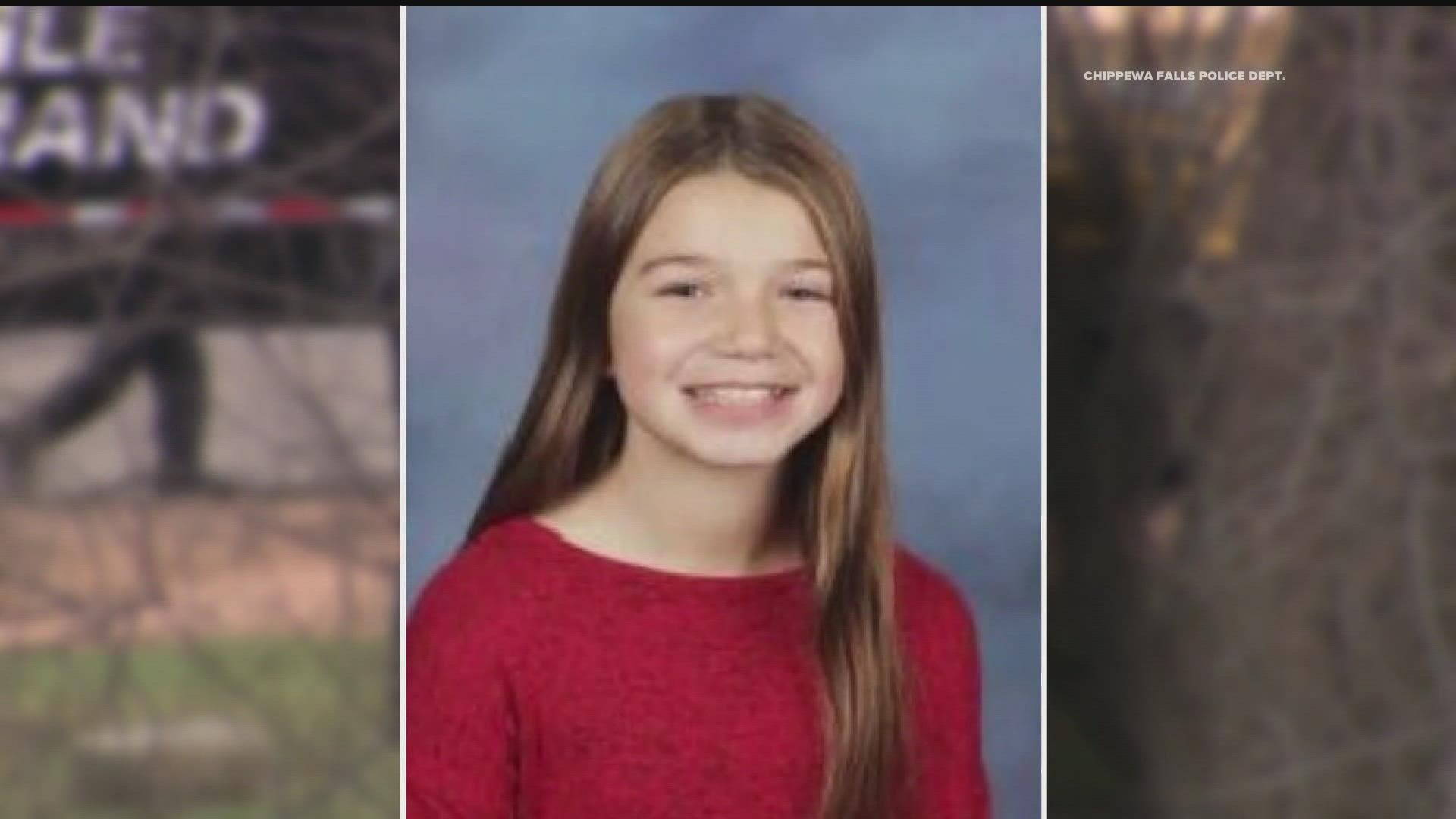CHIPPEWA FALLS, Wis. — More than two years have passed since the murder of 10-year-old Lily Peters in April 2022, a case that rocked the Chippewa Valley region of Western Wisconsin and garnered headlines in the Twin Cities and nationally.
The young girl's disappearance and killing in Chippewa Falls also exposed a gap in Wisconsin's alert system for missing children.
Despite Peters' father reporting her missing around 9 p.m. on the Sunday evening of April 24, 2022, law enforcement could not issue an AMBER Alert because police did not have a clear enough description of either the suspect or a vehicle. Those stringent federal guidelines are in place, according to the U.S. Department of Justice, to guard against possible overuse that "could lead to abuse of the system and ultimately weaken its effectiveness."
Still, as the frantic search for Peters continued into the morning of April 25, lifelong Chippewa Falls native Eric Henry wondered why he did not see any alerts on his phone about the missing 10-year-old.
"It really struck a chord, knowing I lived really close to there, not having answers on what's going on," Henry said. "Nothing's going off on my phone. I'm literally reading it through Facebook."
Tragically, police soon found Peters' body in the woods and arrested a 14-year-old suspect in her murder.
While it's not clear if the issuing of an AMBER Alert could have changed the outcome of the case, Henry still couldn't figure out why he did not receive a notification of any kind. As he returned to work during those dark days following Peters' murder, he could not get the thought out of his mind.
"I was very curious about why there was no alert or anything sent out," Henry said. "It sounded like -- I don't want to say a flaw in the system -- but there was something missing. Clearly, it needed to be addressed."
So, Henry decided to take action.
On the website Change.org, he created a petition to lobby for the creation of a "Lily alert." Although his idea did not make specific policy recommendations, he wanted to raise awareness more generally for an alert system with "less regulations around it so we can respond quicker to missing children." The petition quickly made the rounds online with an astounding number of signatures -- to this day, nearly 200,000 people have signed it.
Henry brought the petition to Wisconsin State Sen. Jesse James, who was a member of the State Assembly at the time.
James, a Chippewa Valley native, is the legislature's only active law enforcement member.
"I want to say almost every legislator in Wisconsin was made aware of (the petition)," James said. "The community speaks volumes when this type of situation happens and they wanted to see action."
James described a difficult process at first. He held meetings with law enforcement, prosecutors and other stakeholders but found that the Wisconsin legislature had very little power to make changes to federal AMBER Alert guidelines.
The breakthrough came when James, a Republican, met with Democratic State Senator LaTonya Johnson of Milwaukee. While interacting during an event, Johnson told James the story of Prince McCree, a five-year-old who went missing in Milwaukee but also never had an AMBER Alert issued because the case did not meet federal guidelines. The similarities floored James.
"I'm like, what?" James said. "We shared what happened with Lily -- and she was aware of it -- and she's like, 'will you help me? I have an idea.'"
From there, Sen. Johnson and Sen. James led a bipartisan coalition of lawmakers in crafting legislation to expand the state's alert systems for missing children. Unable to adjust AMBER Alert guidelines, they instead focused their energy on the state's Silver Alert system, which has typically been used for vulnerable adults.
Ultimately, they passed a bill to give law enforcement broader authority to issue Silver Alerts for missing children who might be in danger but don't meet the AMBER Alert threshold. Specifically, the expanded Silver Alert system will apply to kids younger than 10.
The new law is named the "Prince Act" for Prince McCree but honors the memory of both Prince and Lily. Their families were all present when Gov. Evers signed the bill into law last April, and the governor's office mentioned both cases in its official press release.
"(Sen. Johnson) is a Democratic Senator, I'm a Republican Senator, but working bipartisan, this just shows we do work together," Sen. James said. "If it saves one child... we won."
Eric Henry, meanwhile, remains humble. He was quick to credit James and other legislators for putting his idea into law.
But, make no mistake, he played a role in this, too.
"For me to just kind of poke the bear, and start a petition," Henry said, "I think it's a miracle that it came together."

